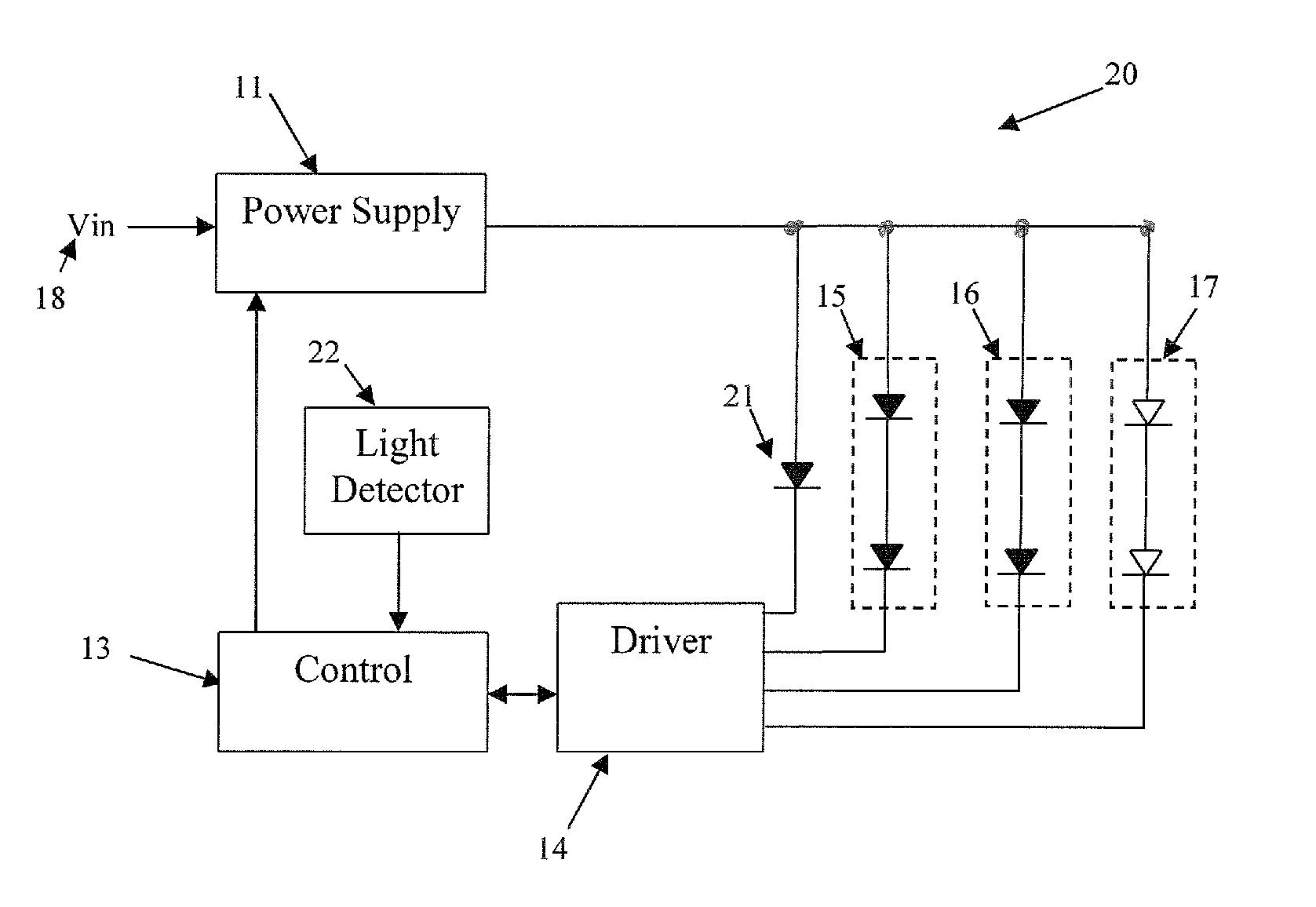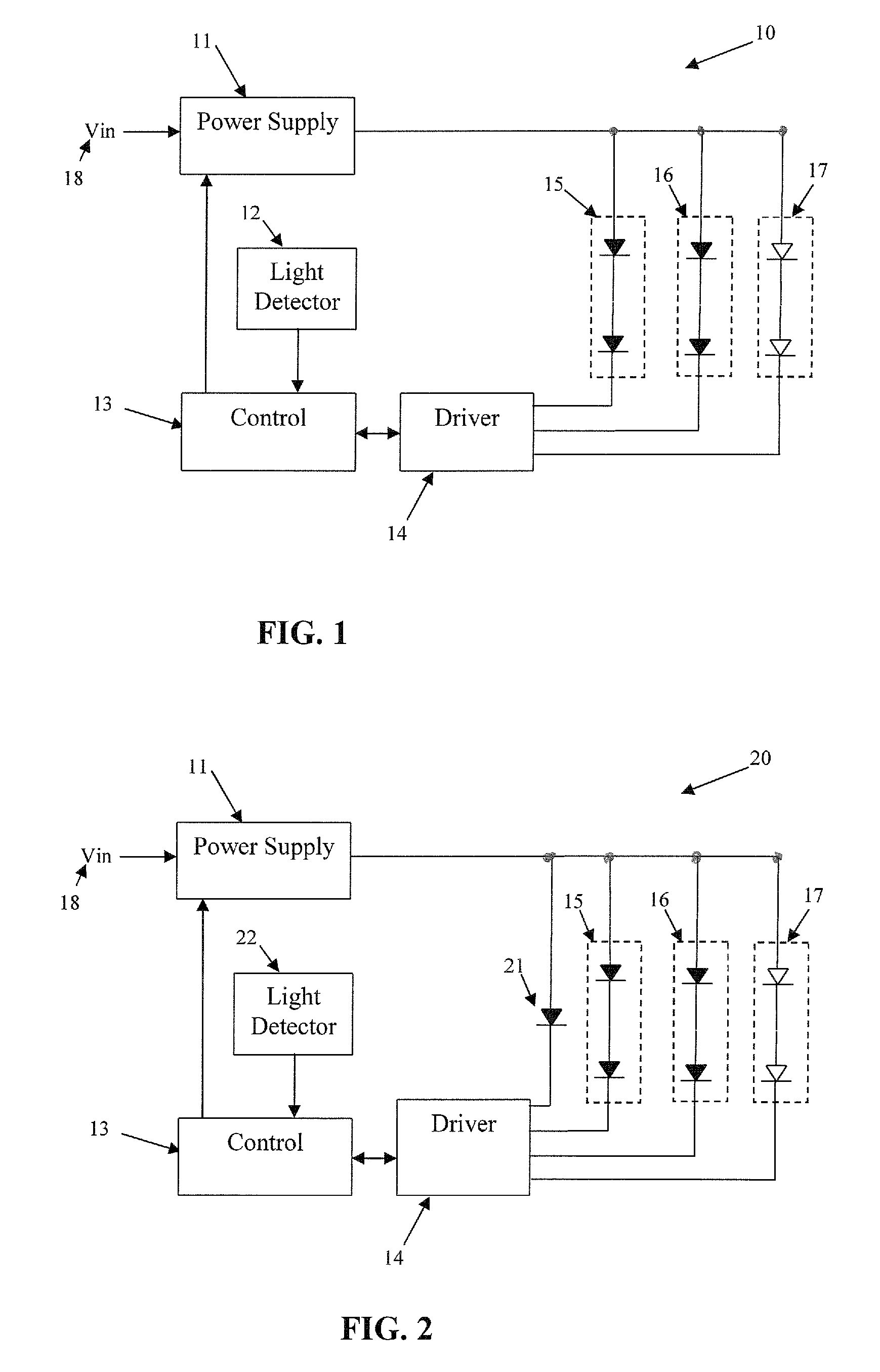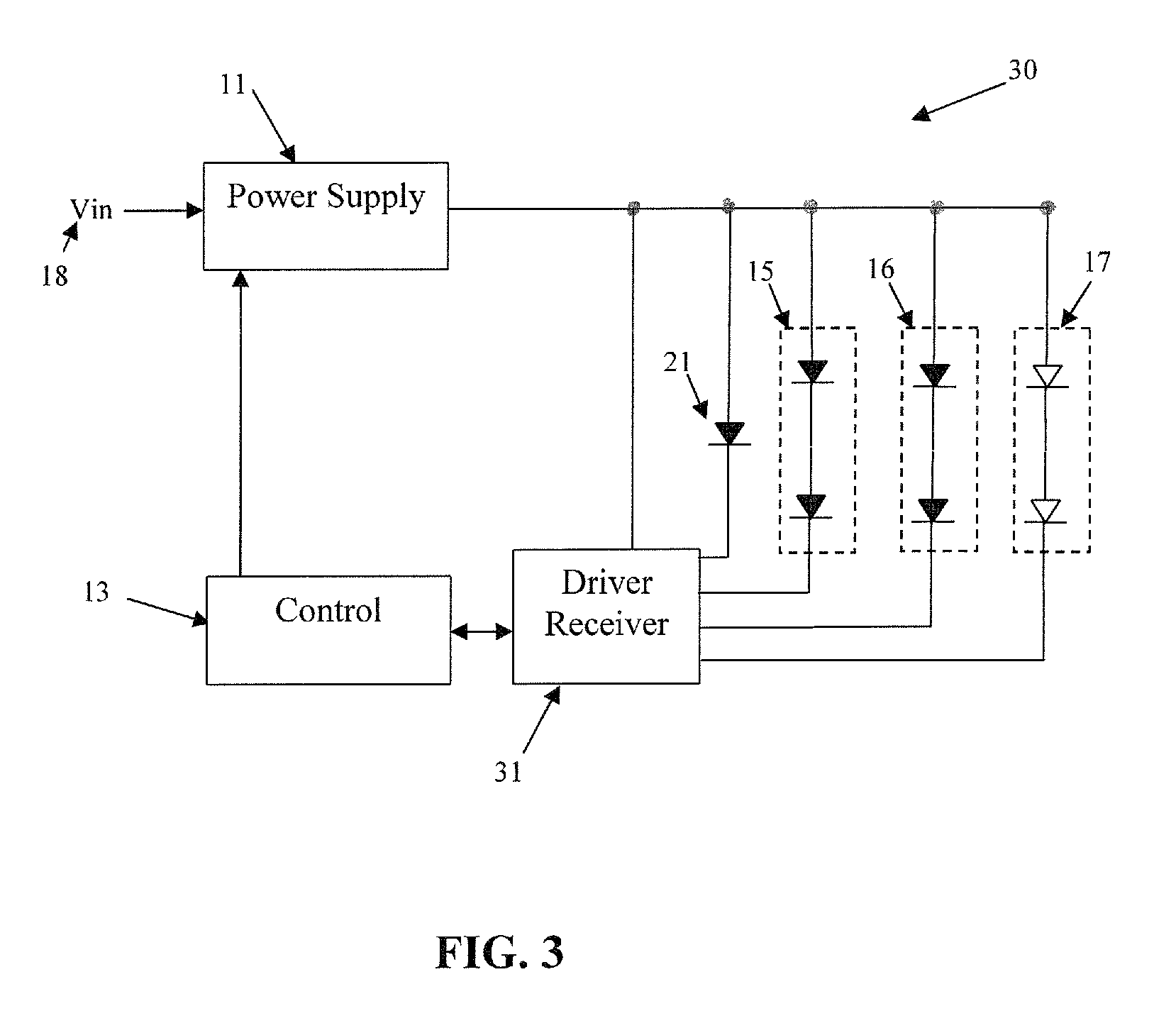Luminance control for illumination devices
a technology of illumination device and control circuit, which is applied in the direction of electric variable regulation, process and machine control, instruments, etc., can solve the problems of inability to accept some applications, the brightness produced by fixed current can change over time, and the lamp will just get dimmer, so as to prolong the longevity of the reference led, reduce the cost and complexity of the optical feedback circuit typically used to monitor the brightness of the illumination devi
- Summary
- Abstract
- Description
- Claims
- Application Information
AI Technical Summary
Benefits of technology
Problems solved by technology
Method used
Image
Examples
Embodiment Construction
[0025]Systems and methods are disclosed for luminance control of illumination devices that maintain relatively fixed brightness over time. Embodiments disclosed provide illumination devices and related methods that utilize LEDs (light emitting diode) as reference light sources, and these embodiments allow for fixed brightness to be maintained and produced by an LED (light emitting diode) lamp over the lifetime of the product. As described herein, various embodiments may be utilized, and a variety of features and variations can be implemented, as desired, and related systems and methods can be utilized as well.
[0026]Turning now to the drawings, FIG. 1 is an example block diagram for circuitry in a conventional LED lamp 10 that includes a light detector 12 to monitor the brightness of light produced by LED chains 15, 16, and 17. Power supply 11 converts a voltage input (Vin) 18 to one or more voltages that are used to operate LED chains 15, 16, and 17, and that are also used to operat...
PUM
 Login to View More
Login to View More Abstract
Description
Claims
Application Information
 Login to View More
Login to View More - R&D
- Intellectual Property
- Life Sciences
- Materials
- Tech Scout
- Unparalleled Data Quality
- Higher Quality Content
- 60% Fewer Hallucinations
Browse by: Latest US Patents, China's latest patents, Technical Efficacy Thesaurus, Application Domain, Technology Topic, Popular Technical Reports.
© 2025 PatSnap. All rights reserved.Legal|Privacy policy|Modern Slavery Act Transparency Statement|Sitemap|About US| Contact US: help@patsnap.com



